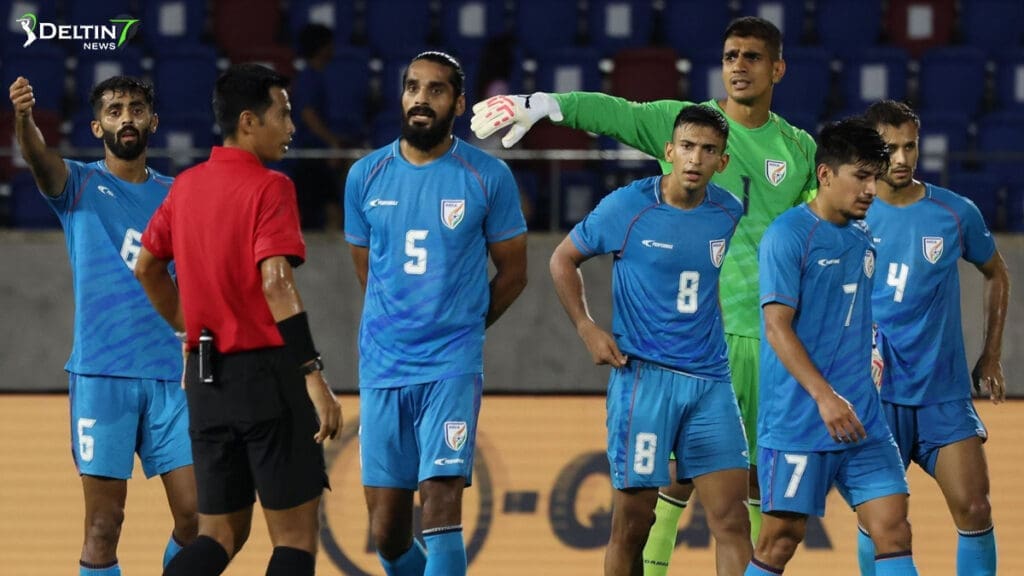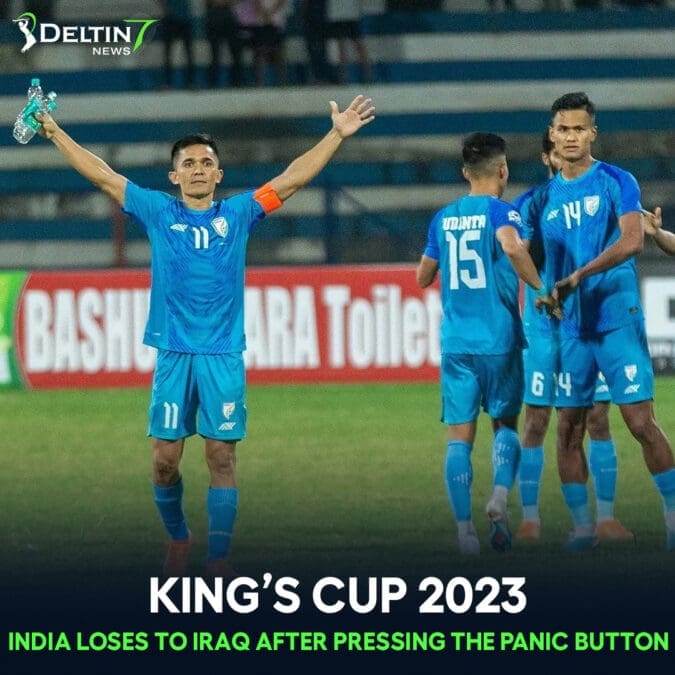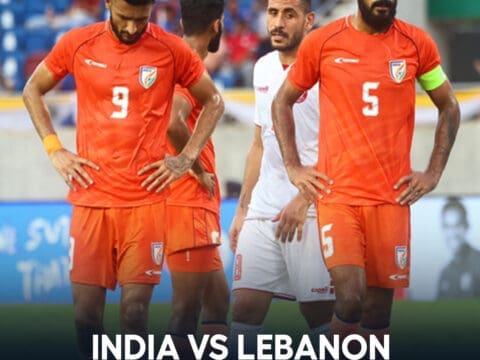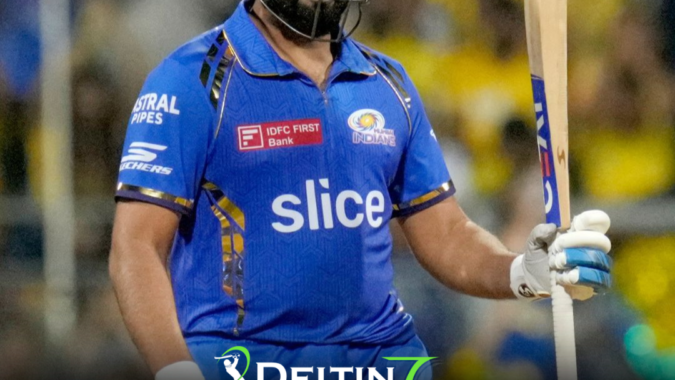
India loses to Iraq after pressing the panic button
Prior to conceding an equalizer in the 79th minute and ultimately losing in a shootout, India had a 2-1 lead.
On Thursday at the 700th Anniversary Stadium in Chiang Mai, Thailand, the King’s Cup semifinal between India and Iraq was decided by just 11 minutes. Even though they have won three events this year, defeating Iraq, who are currently rated 70th in the world, would have been their biggest victory in recent memory. But at the very end, the plot turned sour.
India unexpectedly grabbed a 2-1 lead. However, in the 79th minute, India’s top central defender Sandesh Jhingan unnecessarily tackled Iraqi striker Aymen Hussein to the ground inside the box, giving up a penalty that Hussein neatly buried beyond the tall Gurpreet Singh Sandhu to send the game into penalty shootouts.
The evening in India only got worse. Iraq won the shootouts 5-4 to go to the final of the invitational knockout event after Brandon Fernandes missed the first penalty. However, the outcome is mostly irrelevant because coach Igor Stimac’s top aim was to prepare his team for future challenges by having them duel with challenging opponents. The Blue Tigers compete in the Asian World Cup qualifications for 2026 in November, but their focus will be on the crucial AFC Asian Cup in January, which will be their biggest competition up to that point.
However, Stimac will be happy with what he witnessed on Thursday. India lacked the talismanic Sunil Chhetri (who withdrew from the competition after the birth of his first child) and the fiery teenage winger Lallianzuala Chhangte (who missed the starting XI due to a fever), but they still possessed a frightening presence both with and without the ball.
Stimac will be particularly pleased with their poise while fending off a powerful attack, and he will also be pleased with their courage when counterattacking. The opening goal was the result of an incredible team counterattack.
Goal of wonder
In the first 15 minutes, Iraq controlled the majority of the possession, but India wasn’t letting it stop them. They persisted in pressing, hoping to provoke a mistake. In the 17th minute, when they finally gained control of the ball, they started a counterattack. The quick-footed Shawl Abdul Samad played a wonderful through ball to 24-year-old Mahesh Singh, who deftly avoided the offside trap to receive the ball. Mahesh was able to fox the center back after switching from the right wing to the left, and he then slid the ball past the goalkeeper at the near post with no possibility of stopping it.
Iraq, whose players mostly compete in elite European leagues, appeared perplexed, probably perplexed as to how a team ranked 97th in the world could respond so quickly and effectively. Iraq increased the tempo after giving up and began to play almost entirely in India’s half. Even though India will be incensed with how they gave up the goal, it didn’t take them long to tie the score.
Bashar Rasan, an Iraqi midfielder, launched a fairly audacious try from outside the box. The referee had no choice but to gesture to the area because Jhingan’s arm was damaged. Ali Al-Hamadi, a 21-year-old player for English Championship team AFC Wimbledon, hammered it past Gurpreet, who guessed correctly but was unable to get a touch.
Iraq became even more at ease, and it appeared like they would soon take the lead, but India’s defense proved tenacious. Jesus Casas, the Iraqi coach, became frustrated with what he was seeing and made three attacking substitutions, including Zidane Iqbal, the former Manchester United wonderkid who is now a player for FC Utrecht of the Dutch top division. As the Indian defense struggled to contain Iraq’s physicality, they played more directly, floating balls into the box.
A mistake from Iraqi goalkeeper Jalal Hasan allowed India to take the lead for the second time in the game, shocking Casas’ team once more. Hussein made a mistake in the 51st minute, giving India possession in the opposing half where Sahal found Manvir Singh on the right flank. Manvir sent the ball to the overlapping Akash Mishra after doing well to get some space to receive it. Fortunately for him and India, it rebounded off Hasan’s palm and into the goal as the Mumbai City FC left-back attempted to square the ball into the box.
Lots of advantages
Gurpreet controlled his area well, preventing at least three chances for goals, while failing to stop even one of the seven penalties he faced against Iraq. Even though India will just compete in their third-place match, Stimac can still learn a lot from the contest. They demonstrated that they are prepared to take on Asian giants by combining up front excellently, defending strategically, and not allowing their opponents any breathing room.
That also with scant prior training. India had only a few training sessions prior to this intense match because the Indian Super League (ISL) clubs only released their players during the FIFA window. They are matched up against Australia, Uzbekistan, and Syria in the crucial AFC Asian Cup. How much better the club could perform if Stimac gets his request for a lengthier camp is a legitimate question.










